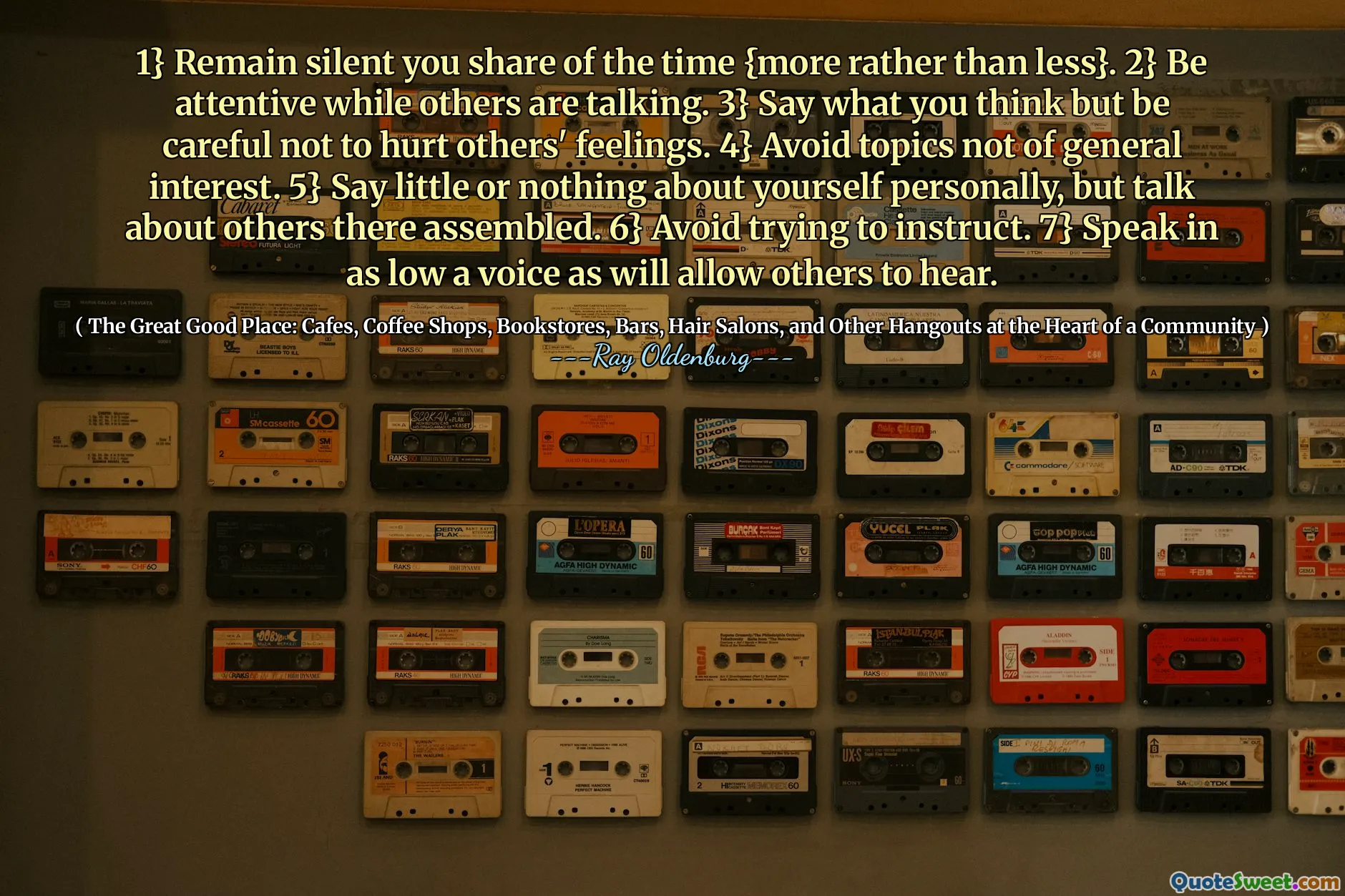
1} Remain silent you share of the time {more rather than less}. 2} Be attentive while others are talking. 3} Say what you think but be careful not to hurt others' feelings. 4} Avoid topics not of general interest. 5} Say little or nothing about yourself personally, but talk about others there assembled. 6} Avoid trying to instruct. 7} Speak in as low a voice as will allow others to hear.
This quote offers a nuanced blueprint for meaningful and respectful conversation that fosters community and connection, principles central to Ray Oldenburg's work on "third places." The guidance to "remain silent more than you speak" invites us to appreciate the power of listening—a skill that is often underestimated but vital for understanding others and building relationships. Being attentive while others speak not only honors their voices but also cultivates empathy and mutual respect.
The advice to express oneself thoughtfully while avoiding harm to others' feelings suggests a balance between honesty and kindness, crucial for nurturing safe and welcoming social environments. Moreover, focusing on topics of common interest and discussing other members of the group, rather than oneself, shifts the conversation away from self-centeredness to collective engagement and shared experience. This approach enhances inclusiveness and aligns with the idea of community spaces where dialogue brings people together.
Avoiding the urge to instruct recognizes the value of equality and humility in social interactions—places where dialogue is not about dominance or correction, but exchange and connection. Speaking in a subdued voice further contributes to maintaining a respectful and intimate atmosphere. Collectively, these guidelines serve as a reminder that quality conversation is not merely about exchanging information, but about creating a space where all participants feel heard, valued, and connected—an essential underpinning of the "third place" concept that lies at the heart of thriving communities.






